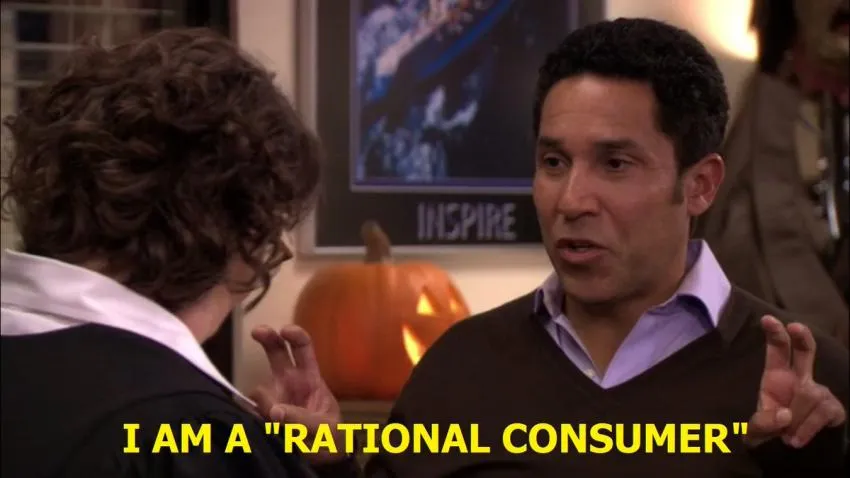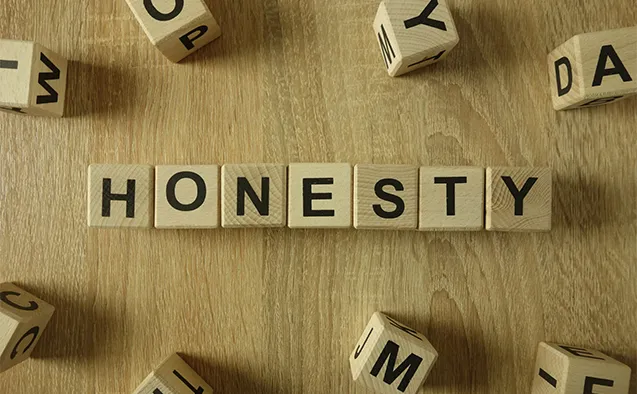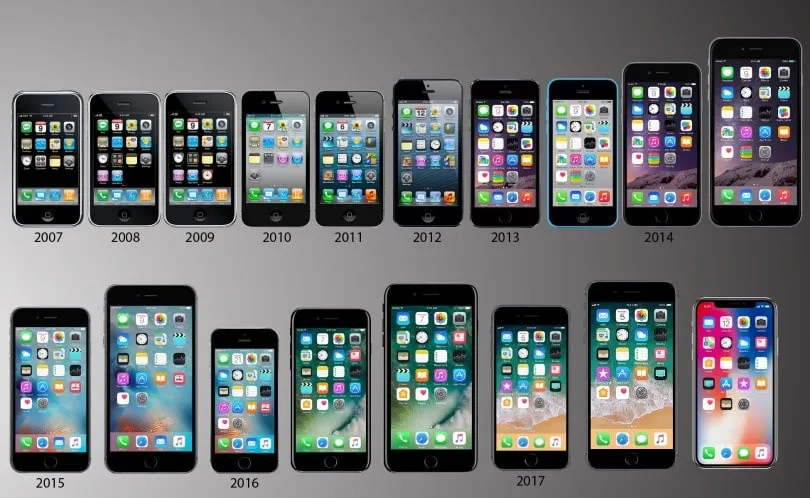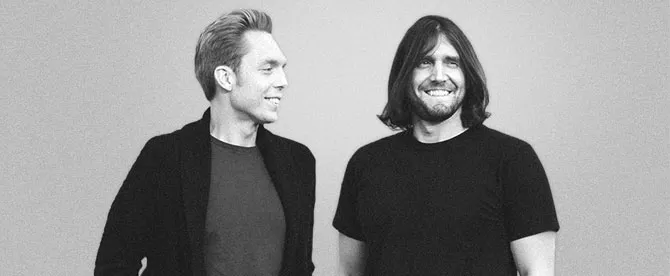Seven Crucial Steps You Should Take To Become A More Rational Consumer

Levi’s “Buy Better, Wear Longer” campaign rolled out in April of 2021, enlisting the help of various influential names to promote the quality of their clothes. Jaden Smith, actor, and fashion icon led the public service announcement (PSA), while international soccer player, Marcus Rashford, supported the message that put Levi’s as an environmentally conscious company.
In recent years, business social responsibility gained momentum as customers asked for community-driven efforts by companies, especially by big-name brands. This practice seemed virtuous, at first. Now, we have reason to question a company’s motives for its social involvement. Are they being genuine, or are they trying to earn our trust so we buy their products?
While being skeptical about the intentions behind a brand’s social efforts is perfectly valid, Levi’s campaign did address a pressing subject of our society. That is our continuous (bordering on unnecessary) product consumption that requires tons of resources to satisfy. “When we choose to buy less, we waste less,” were the words in the ad. They might be onto something there…
This article will address the reasons behind our increasing consumption and its consequences. It will also shed light on how consuming less can benefit the world, optimize your finances, and, as a result, improve your lifestyle.
Fast Fashion Has You Convinced That You Are Missing Something
Fashion, the way it’s been done recently, is an issue for a world experiencing climate change due to the number of resources that go into its production. New trends sprout every season and, curiously, new seasons are added to our already strained calendar. Before, you had clothing apparel for cold weather and hot weather. Now, you can expect a line of items for summer, winter, autumn, and spring; not to mention holidays in which you have to buy ugly sweaters or apparel striped in red, white, and blue.
Fast fashion is the method of pushing clothes to the market as quickly as possible to take advantage of trends, the season, or the latest runway clothes.
Sustainable apparel expert, Shannon Whitehead, comments on the true intentions of fashion companies. “They want you to feel like you are out of trend,” she says in the film “Minimalism: A Documentary About the Important Things.” Appealing to people’s insecurities should be an immoral practice. Yet, fashion brands do it and they profit off of it.
Now that you know who is responsible for your unbound consumption habits and how they do it, you can implement the following steps to buy less and escape the consumption cycle.
Step 1: Don’t Fall for the Fast Fashion Trap

The first step that consumers should take to free themselves from the grip of fast fashion is to not fall for its traps. Realizing that there is more at stake than feeling out of place is also part of it. The world is experiencing climate change, and our insecurities over status and belonging are at their core.
Just like brands are working hard to appear socially conscious and appeal to our ethically evolving consumer demands, we have to be socially conscious consumers as well.
We cannot fall victim to hypocrisy, like when we demand perfection from our politicians, but we are less than perfect ourselves. To avoid this outcome between customers and companies, we, as consumers, can take steps to be socially and environmentally conscious citizens.
It starts with the rule above, which is important to reiterate: don’t fall for the fast fashion trap and realize that there is more hanging in the balance than your social status.
Step 2: Be Deliberate With Your Consumption Habits

When we were lectured for an hour and a half on micro and macroeconomics, our professors chewed our ears off talking about the rational choice theory, but they never taught us how to make rational choices.
Turns out, engaging in deliberation is how you make rational choices. When it comes to consumer behavior, deliberation is a process that involves conscious consideration of all the alternatives, their ranking in relation to each other, and their utility based on the interests of the group or individual.
Knowing that, can you engage thoroughly in deliberation every time you go shopping? Probably not. It’s a challenging and time-consuming task. However, what you can do is treat it as a checklist, and go through it quickly before making any purchase. Here is how it would look like:
- Do I know all alternatives to this product or service? Check
- Is this the best alternative for my preferences and current financial situation? Check
- Will this product or service bring value to my life? Check
If you can check these items off the list, you are ready to make the purchase. But that brings me to my next point.
Step 3: Be Honest With Yourself

Levi’s can promise us that their products are of better quality and, therefore, long-lasting, but to a shopaholic, it makes no difference. Buying is buying, and the rush we get from it is the same whether the jeans are double stitched or not.
That is why deliberation, when it comes to material purchases, is crucial. Buy what you need, and only what you need, and try to silence that persuasive voice that tells you that you need a pair of Crocs of every color.
Be honest about whether the purchase will bring value to your life or not. Only you can be the judge of that, and I assure you that, most often than not, it won’t.
Only you know whether you are making an impulsive decision or a rational one. When I’ve bought clothes or electronics on impulse, I usually get a fire in my belly and a rush of deep satisfaction. That is when I know that I am about to make a rash decision and that my desire to feel good is greater than my will.
This is a scary feeling because it is not an easy one to turn off. It takes a lot of commitment and self-awareness to execute, but you are a competent being on your way to financial and materialistic freedom. I know you can do it.
Step 4: Just Because You Can, Doesn’t Mean You Should

By now you have realized that fast fashion is a reality and that you should avoid its traps; you know that you should engage in deliberation before any purchase and that you should be honest with yourself before handing over the green.
But what about minimalism? A consumer purchase may seem affordable, attainable, and attractive, but perhaps you shouldn’t make it. The issue with climate change is that our higher standards of living have led to an increase in production demand, putting a strain on our limited resources.
Minimalism seems to be the only solution to a rising population living in a limited world, and not many people are aware of the movement. It consists of living below your means and with as few material objects as possible.
It becomes increasingly difficult to be a minimalist In a world that values gadgets and social status, but, if implemented, its benefits are invaluable. Minimalism leads to fewer distractions, higher mental presence in the moment, and fewer commitments to status, and more to yourself.
Step 5: Realize that It Is Not Just Fashion

If this message still hasn’t hit home, maybe a different approach is necessary. Buying clothes in excess harms your wallet. Gasp! I know! And this is another reason why Levi’s PSA is one of the best at addressing the biggest detriments of the fashion industry. However, it is not just fashion.
The concept of buying new when our possessions go out of style has filtered through to almost every industry. New phones come out every year, so we replace our perfectly functional ones with the latest model.
This is an unnecessary purchase that keeps you on payment plans for the rest of your life as you seek liberation from living paycheck-to-paycheck. See the irony? “When we wear longer, we can buy less,” the Levi’s PSA says, but what should resonate with you, if your budget is tight, is “buy less.”
Step 6: Realize How Advertising is Influencing Your Life

Navigating through the marketing and advertising jungle we live in is no easy task, especially because it is meant to distract you and persuade you to take a course of action. Perhaps we tell ourselves that these advertising strategies don’t work on us; that we are capable of making our own decisions and that we are not influenced easily.
But advertising works. It works because we leave a trail of crumbs online about what we like and dislike. The moment you leave a heart on your favorite influencer’s latest Instagram post, big brother is already advertising related products to you. How can you ignore it? It's in the sale! What a coincidence, right?
I’m not saying that you should stop liking pictures on Instagram. I’m saying that advertising is carefully placed in front of you and that it is no coincidence. As a result, being aware of its intentions and the way it filters into your life should make you a conscious consumer, one that is not persuaded easily.
Step 7: Find Inspiration to Maintain Your Minimal Lifestyle

You may be thinking that it is easier said than done to follow these rules. Well, if you need some inspiration, minimalism and its teachers can provide it. Minimalism is a lifestyle and counter-cultural ideology that challenges materialistic culture and the rise of meaningless consumption. Ryan Nicodemus and Joshua Fields Millburn are The Minimalists and they share lots of content, from podcasts and TV shows to books they've written on the movement.
The Minimalists’ message is to avoid living your life for stuff. Focus instead on your passions, relationships, and experiences because those are the things that last. The things you will remember when you are old will not be the car, the clothes or appliances you bought. They will be the people you met, the things you accomplished, and the moments you lived.
Levi’s PSA is great on many levels. Deciding whether their intentions are genuine or not is like wondering if your blinking light is off. You should probably check, but let’s take care of the empty gas tank first. The real problem is much bigger and it is intertwined with our culture.
Mass production led to the highest standard of living per capita in centuries, but now we are experiencing diminishing returns. Returning to a time where there was balance, at least lifestyle balance, is the key. How do we get to a point where we are material and immaterial enough?
Author and sociologist, Dr. Juliet Schor believes that we are not material enough. “We need to be true materialists, like really care about the materiality of goods,” she says. Understanding this might be the first step towards lifestyle balance. Often what we have is enough, but we do not realize it, and that is because we are creatures of want.
But we are also reflective creatures. So let’s reflect on what we really want; what really will make us happy and what will bring fulfillment to our lives. Products are not the answer, and in our materialistic society, they only distract us. Instead, use that money, time, and energy that you would otherwise expend shopping, on something that fills your soul. And when you are in desperate need of a pair of pants, a shirt, or shoes, buy sustainable, durable, and indispensable.
Opinions and Perspectives
Has anyone else noticed they feel better after buying less? My anxiety has definitely decreased.
Love the practical approach. These steps feel achievable unlike most minimalism advice I've read.
The section about honest self-reflection really made me examine my shopping habits.
Great article but I think it understates how hard it is to resist peer pressure to keep up with trends.
The deliberation process has helped me save so much money. I wish I had learned this years ago.
I think the key is questioning whether the upgrade actually adds value to your life or just feels nice to have.
This advice works well for clothes, but what about technology? It's harder to avoid upgrades there.
Interesting how they tied individual consumption choices to larger environmental issues.
The part about experiences over possessions really hit home. I'm redirecting my shopping budget to travel now.
I've found that unsubscribing from marketing emails has really helped reduce my impulse purchases.
The article made me realize how much of my shopping is driven by boredom rather than necessity.
Don't feel guilty! Use it as motivation to make better choices going forward.
The connection between minimalism and financial freedom is so important. Wish they taught this in schools!
Been trying to be more mindful about my purchases lately. These steps give me a good framework to work with.
The steps are great but I wish there were more concrete examples of how to resist marketing manipulation.
What struck me most was how our wants are created by marketing rather than actual needs.
The focus on Levi's campaign seems a bit much. There are better examples of sustainable fashion initiatives out there.
I've started asking myself if I would buy it if I couldn't post about it. Really helps cut down on unnecessary purchases.
The article could have mentioned how social media drives our need to constantly have new things to post about.
Just cleaned out my closet after reading this. Found so many items with tags still attached. Never again!
I wonder how many people will actually follow through with these steps. It's easier to read about change than to make it.
The part about diminishing returns from mass production is interesting. We've hit a point where more stuff isn't making us happier.
Yes, but I think that's part of the problem the article addresses. We've made consumption too easy and mindless.
Anyone else feel overwhelmed by how much effort it takes to be a conscious consumer these days?
The bit about advertising tracking our online behavior is scary but true. I started noticing ads for things right after talking about them.
I appreciate how the article explains the difference between impulsive and rational decisions. That fire in the belly description is so accurate!
The article makes good points but seems to shame people who enjoy fashion. There's a balance between mindful consumption and personal expression.
Absolutely! I started my capsule wardrobe last year and it's been life-changing. Much less decision fatigue in the mornings.
Has anyone tried creating a capsule wardrobe? That seems like a practical way to implement these principles.
Dr. Juliet Schor's quote about true materialism is fascinating. Never thought about it that way before.
The article could have mentioned more about second-hand shopping as a sustainable alternative to fast fashion.
That point about phones is spot on. I'm still using my 4-year-old phone and it works perfectly fine!
I find it interesting how the article ties social responsibility to individual consumer choices. We all have a part to play.
The connection between minimalism and mental clarity really resonates with me. Less stuff really does mean less stress.
Anyone else notice how many new seasons the fashion industry has created? It's ridiculous how they manipulate us into buying more.
My favorite takeaway is about being honest with yourself. I'm definitely guilty of justifying purchases I don't really need.
The article makes great points about climate change, but I wish it had more specific data about the environmental impact of fast fashion.
I've started implementing some of these steps and my wallet is definitely thanking me. It's amazing how much we spend without thinking.
The checklist isn't meant for grocery shopping! It's for those bigger purchases that we often make impulsively.
That checklist seems too time-consuming for everyday purchases. Who has time to evaluate every single buying decision?
I've been following The Minimalists for years and it's completely changed my relationship with consumption. Highly recommend their documentary!
Does anyone else find it ironic that we need influencers to tell us to buy less? The whole system seems backwards to me.
The part about advertising influences really opened my eyes. I never realized how my Instagram likes were shaping my shopping habits.
Actually, I think Levi's deserves some credit. At least they're promoting buying less, even if it seems contradictory to their business model.
I disagree about Levi's campaign being genuine. It feels like they're just jumping on the sustainability bandwagon to sell more products.
The deliberation checklist in Step 2 is so practical! I've started using it before making purchases and it's already saved me from several unnecessary buys.
While I agree with most points, I think it's unrealistic to expect everyone to go full minimalist. We need to find a middle ground that's actually sustainable for most people.
The point about fast fashion playing on our insecurities really hits home. I've definitely bought things just because I felt out of trend.
I really appreciate how this article breaks down the psychology behind our shopping habits. It's made me reflect on my own impulse purchases lately.
